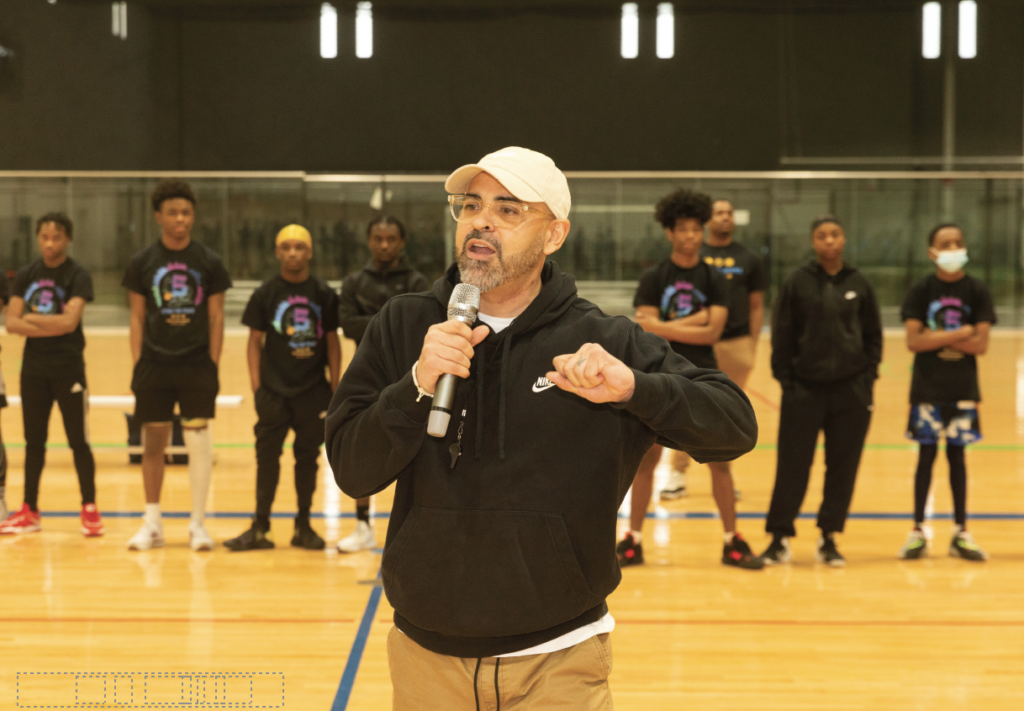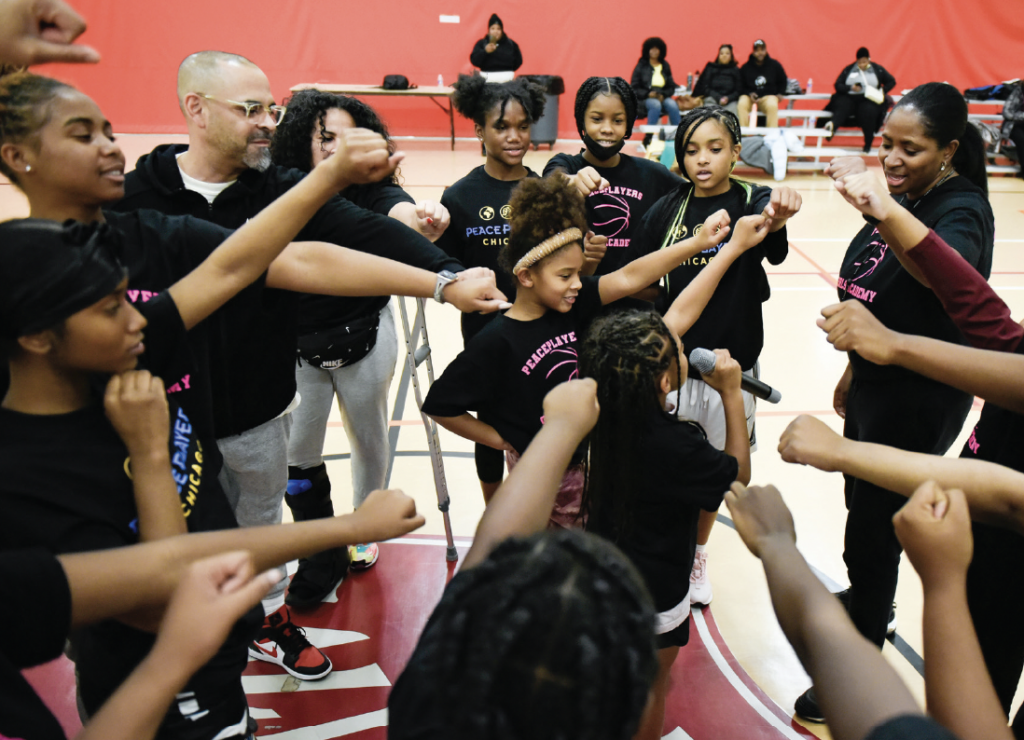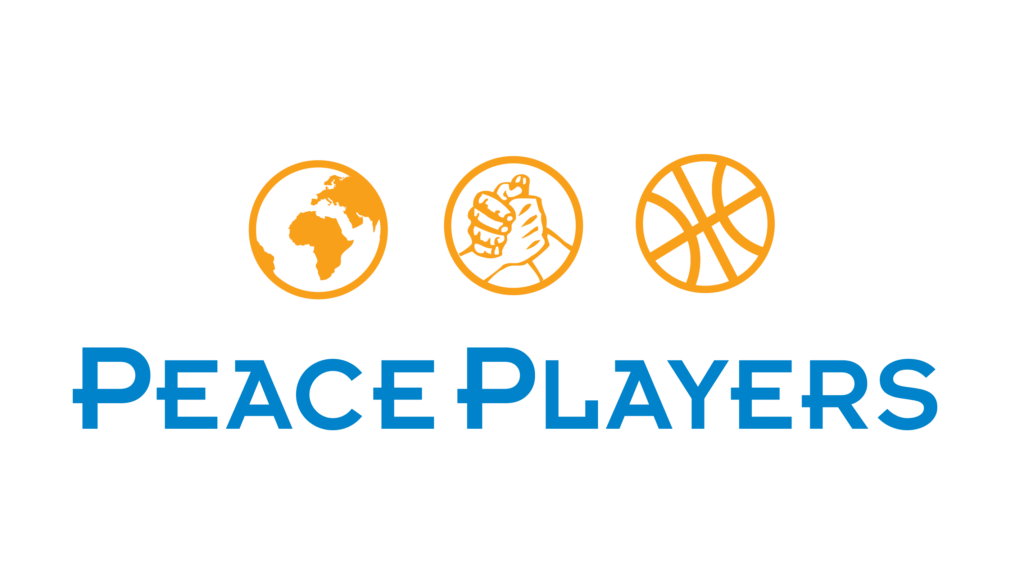MENTORSHIP IS THE NAME OF THE GAME
June 13, 2023
SHARE
My family moved to Chicago from Puerto Rico when I was five. I’ve worked and lived in black and brown communities my entire life. I’ve seen my family begin a small business and work with community residents from an early age.
I grew up in Chicago’s Humboldt Park community. I went to several schools in the community and witnessed much violence growing up. I also saw many community leaders stepping up to help young people navigate a better path. Growing up, I had many great mentors who helped me navigate the issues my community faced. I started working as an outreach worker with high-risk youth in my early twenties because I understood I was part of the solution.
I have worked in community development efforts for over 15 years, working with youth and community residents to help bring resources to Chicago’s most underserved communities. I worked for years to help launch social enterprise efforts with young adults ready to start small businesses in Black and Brown

communities. Today I am co-owner of a small business in Humboldt Park providing health and fitness classes and free community classes on the weekends to residents. I also founded a nonprofit called Urban Mission Chicago that worked to address the lack of representation of black and brown students studying abroad and accessing global experiences.
Historically excluded racial and ethnic groups have consistently been underrepresented regarding cross-cultural exposure. When I read about PeacePlayers’ mission, I knew I wanted to be part of it. The opportunity to develop leaders is at the core of my life’s work. My love for the game of basketball, youth, and development all pulled my heart to join the team.
PeacePlayers’ Core Values were also a draw for me. I have always worked at my best in collaboration. So I was excited to work in this environment when I read about the PeacePlayers’ culture of collaboration. As a leader, I love to encourage my team to participate in all aspects of decision-making and process. I want my team to share their opinions and work together to complete goals and objectives. At an early age, I was given responsibilities that led me to believe in my ability to lead and bring people together for a common goal. I enjoy coaching my teammates with best practices and problem-solving.
And we get to teach this value to our youth. I want our youth to understand the importance of working together to solve problems, on the basketball court and off.
The work for me is to help young people to see that they don’t have to do it alone when faced with a problem in life. Also, seeing people as people is a value that connects me to PeacePlayers. I was raised with this important value. Growing up, my mom exposed my siblings and me to the beauty of others regardless of background, race, or social class. Growing up, we had a map in our room, and my mom would teach us what she knew about different cultures. This started my path to travel at an early age. I went to Central America in my early twenties, which opened my eyes to how people lived in other spaces. Seeing people as people, not objects, is at the heart of everything I believe in.
These values are also relevant when I think about PeacePlayers in Chicago and the deep divides in our city. I am challenged to see youth from different neighborhoods come together to develop new and lasting friendships. Chicago is a divided city, and the work that the Chicago team and I are developing is a city map of three peace zones – the south side, west side, and north side of the city. The work to bridge divides and develop new friendships is at the heart of everything we do. I want to see youth from different communities coming together in a safe space to play, learn from each other, and foster new friendships. The goal is to showcase the beauty of new friendships through the game of basketball in all three peace zones in Chicago.

Providing safe spaces for youth to come together also has a lot to do with equity: fairness and justice – recognizing that many in the communities that we work in do not all start from the same place. PeacePlayers Chicago acknowledges that fact and makes the necessary adjustments to allow equitable opportunities to everyone we contact. We do this by developing relationships with the youth and family. When building relationships with the youth and their families, we understand their circumstances – for example, if they need shoes, or if they have a disability.
Mentorship is a vital part of creating equitable opportunities. Youth with mentors report college and career aspirations; mentorship is foundational to helping young people set and pursue goals. Mentoring, at its core, guarantees young people that there is someone who cares about them and assures them they are not alone in dealing with day-to-day challenges. This is one of my biggest motivations for this role. I want to help young people understand that they are
the CEO of their lives. I want our youth to have access to professional networks, career opportunities and connections to get internship opportunities. I want them to learn the importance of teamwork, creativity, and communicating effectively. I was fortunate to have grown up with extraordinary youth leaders who looked like me and helped me develop in sports, school, and home life. So, I know the importance of having someone who understands how young people see life around them in the community. To lead in this role is significant because I get to support my community now and help develop the next generation of black and brown leaders in Chicago.





